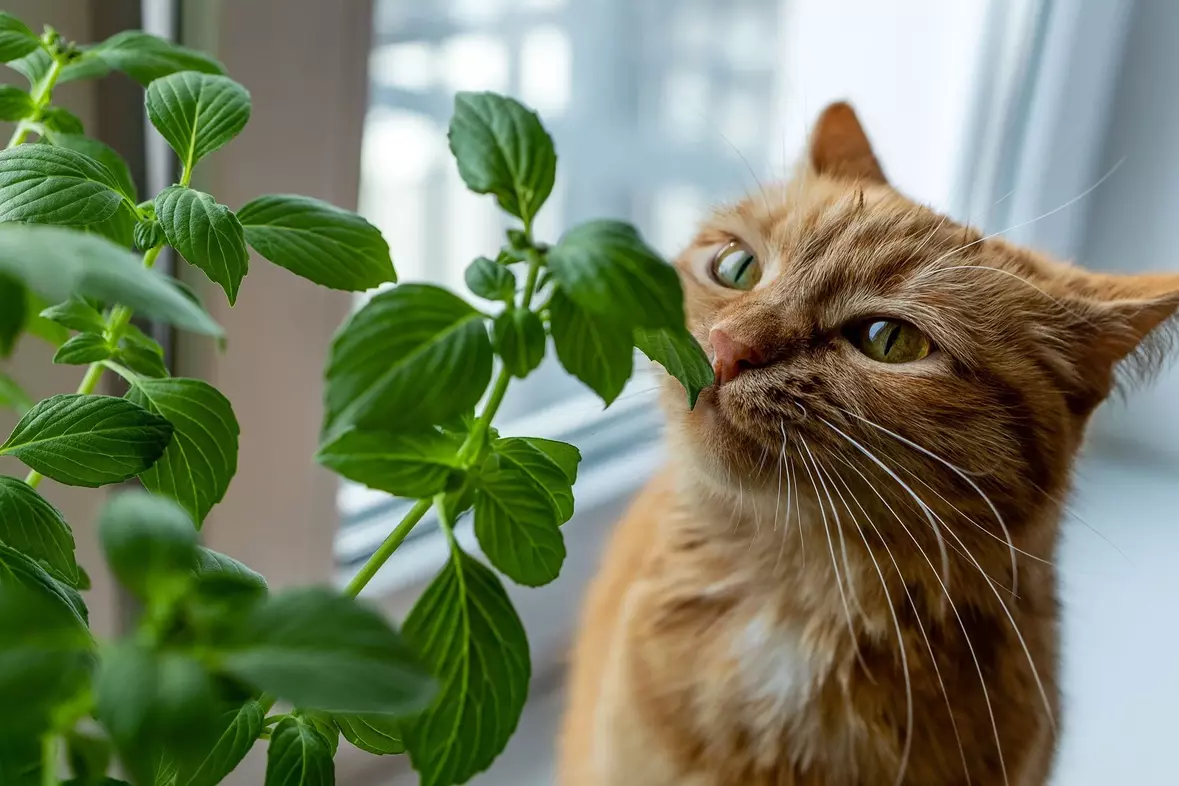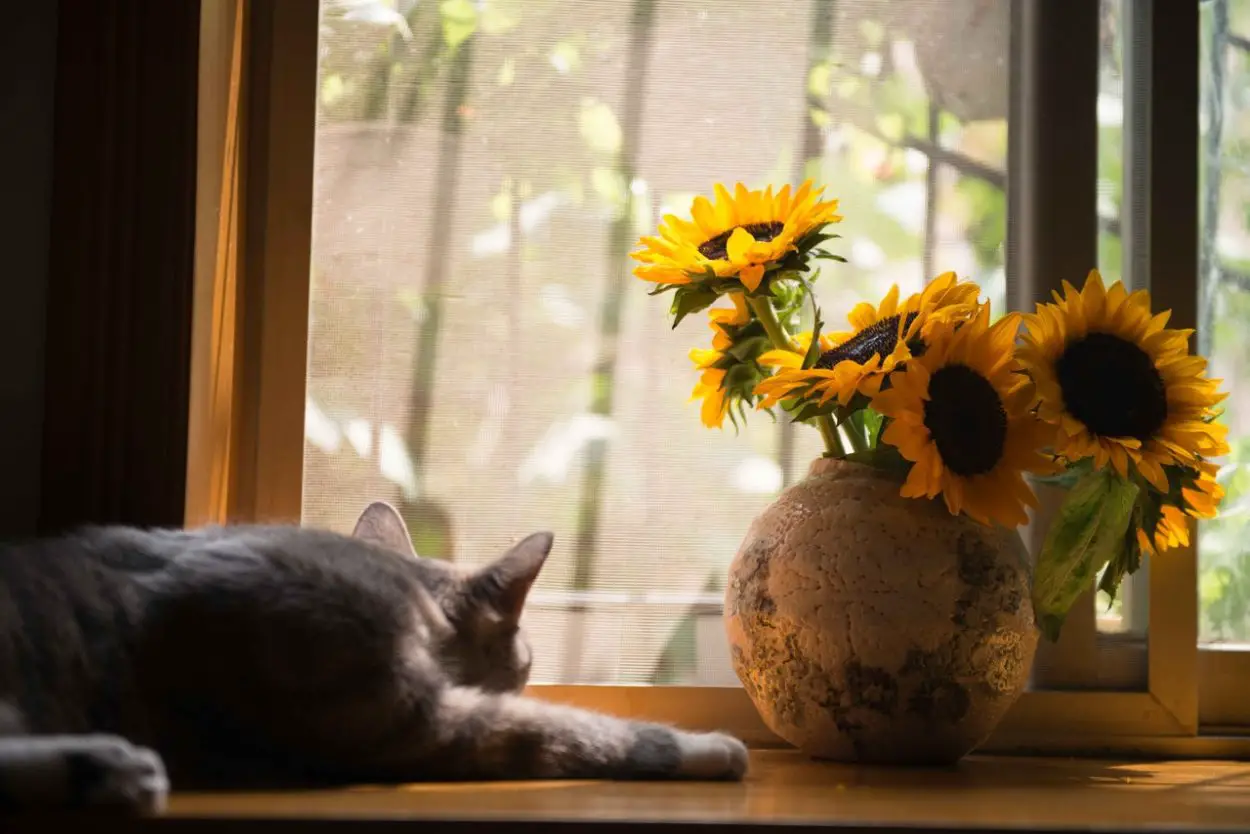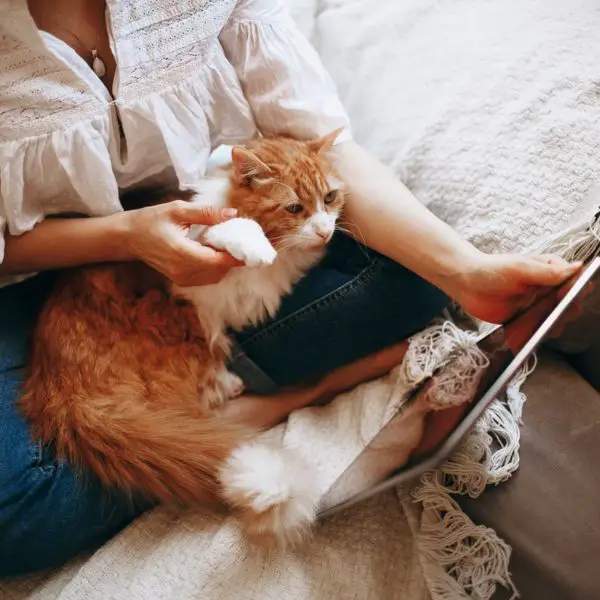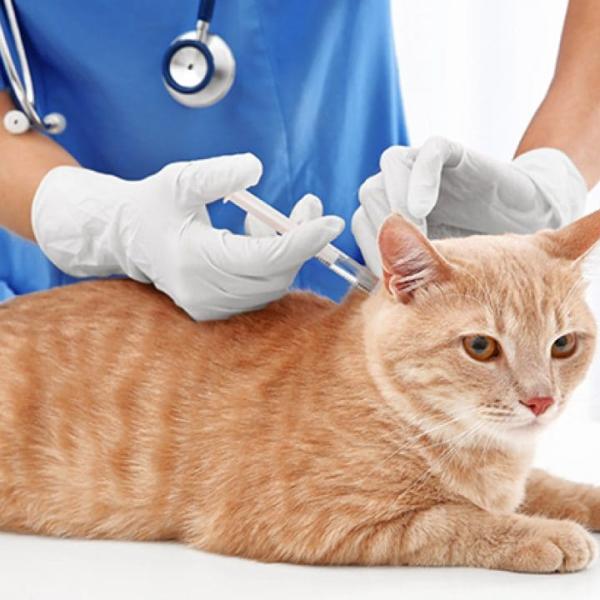Call for help from concerned cat owners or complaints from upset gardeners: There are numerous posts on online forums about why a house or a neighbor’s cat has replaced a cat toilet again with plants and a flower garden. Why do cats love to urinate on houseplants so much? You can learn all about the possible causes and how you can stop the unwanted behavior of cats below.
Why Do Cats Like To Pee In Plants?
Whether it’s flower beds, a garden with plants, outdoor or houseplants: many cats seem to be magically attracted to greenery in an apartment, on a balcony, or in a garden. They like to play with branches that nod funny, nibble on green leaves or dig in the soft soil for potted plants.
Cats are simply curious and want to explore everything around them, which is one of the many reasons cats like to pee in plants – and such a soft material like flower soil that you can play with and dig with is their weakness in any case. It is therefore not surprising that some cats use houseplants or flower beds as a cat toilet and try to bury their urine or feces carefully underground.
Which is completely natural for cats, for cat owners, plant lovers or gardeners. After all, cat urine stinks terribly, especially if it ends up in the pot of a houseplant in the living room. And if a cat always chooses the same plant to urinate, it can harm the life of the plant. How can such feline behavior be prevented and how can plants and soil be protected from unwanted “visits”?
Is The Cat Messy?
It is important to first clarify for what reason the cat urinates into the plant. Is she simply bored and the plant gives her the desired change?
Does she want to mark her territory or is it messy? There are big differences between clutter and marking territory and therefore cat owners need to react differently to it. While marking territory primarily serves as a communication signal, clutter is actually about finding a suitable place to urinate.
Cats that are messy usually refuse their cat toilet – is the reason for this is that they refuse sand because the cat toilet is too infrequently cleaned, stands in an inappropriate place, or because it is cleaned with strong-smelling cleaners. Cats that mark territory, however, usually still use the cat toilet. Also, they do not bury urine with their paws, but wet on the branches and roots from the horizontal.

How To Protect Your Plants From Cats?
Before you teach your cat tidiness or wean him from marking territory – which of course requires a little time and patience – let’s first focus once again on our plants. Namely, you can do certain things to protect the greenery in your home from urinating your cat in the short term.
Build Barriers Of Stone, Pine, and Aluminum Foil
Cats really like the soft ground around plants. To keep them away from pots and flower beds, sometimes it is enough to cover the ground with a harder material. Stones, shells or cones are very suitable for that and at the same time decorative.
If you want to play it safe and don’t care so much, you can cover the ground in pots and flower pots with aluminum foil.
From this strange, slippery and rustling material, many cats move their paws. Also slightly less conspicuous than aluminum foil for plant protection are fly nets or other lightly studded barbed wire.
Use Aromas and Unpleasant Odors
Another way to protect plants from cat urine is to spray them with an odor that is unpleasant to cats. Some cat owners in this case suggest the smell of lemon or orange.
Instead of fragrance sprays that contain perfumes or insecticides and that can be toxic not only to plants but also to cats, prefer to put lemon or lime zest around your plants.
Alternatively, you can use cotton balls that you have previously dipped in lemon or lime juice. Many cats even avoid coffee grounds and spices like coriander, lemongrass, garlic and onions. When using food, you need to make sure that your cat does not eat it. Also, you need to change the rinds of lemons, limes or oranges regularly to prevent mold.

Keep Plants Out of the Reach of Pets
If stones, lemon or aluminum foil do not prevent the cat from urinating on potted plants, then it can help to keep them out of the cat’s reach.
For example, you can place smaller plants in hanging pots on a wall, ceiling, or on a high shelf that your cat cannot reach.
This of course applies to all plants that are poisonous to the cat, such as cyclamen, lilies, amaryllis or chrysanthemums.
Secure Yourself with Sounds and Motion Detectors
One slightly more demanding but completely effective method is to distract cats from the plants by frightening them with unpleasant sounds or flashes of light as soon as it approaches the plant.
Of course, this kind of intimidation only works if applied regularly, that is, it is only suitable for owners (or neighbors) who are often at home and watching the cat wander around the apartment or garden, and at a crucial moment can grab a bell, whistle or flashlight.
Those who don’t have the time to do so can of course equip the plants with an automatic motion detector that produces sounds or lights up when someone approaches them. It is important to scare your cat only slightly and not to scare her with this method.
With cats, who are very anxious by nature and react stressfully or nervously to loud noise or unforeseen events, it is best to resort to a gentler form of weaning.
Re-educate Your Cat
Although the deterrent and protection methods described above protect your plants from cat urination in the short term, they probably won’t be enough to keep your cat completely tidy.
A cat that is untidy and marks the territory will – if deprived of plants – instead look for a bed, couch, fence or door frame so that it can urinate. In order to permanently get your cat to use only the cat toilet to perform urination, you need to ask yourself once again about the reasons for her behavior.
- Does your cat get wet on plants because he refuses his cat toilet?
- Is your cat nervous or stressed due to certain changes or events, and has acquired this awkward habit as a result?
- Is this really about clutter or marking territory?
- Is the cat maybe sick?
Cats sometimes feel pain when urinating due to the disease and therefore no longer dare to go to the designated cat toilet. There are various reasons why cats suddenly start urinating on plants, and there are many different approaches to weaning off such behavior.
The three cleanliness measures described below are therefore not applicable to all cats. If you’re not sure what’s behind your cat’s messy behavior, seek the advice of a veterinarian – and a cat psychologist if necessary.
In addition, the veterinarian can thoroughly examine your cat and rule out the possibility that the disease is the trigger of “strange urination”.

Three Measures To Teach A Cat Cleanliness
Increase the attractiveness of the cat toilet: cats are by nature very clean animals. If they defecate in other places instead of in the cat toilet, this indicates that she is simply refusing to use the cat toilet. This rejection can have various causes:
- Cat toilets are too infrequently cleaned (dirty cat litter)
- Cat toilet is not easily accessible (closed door, too high edge)
- Rejection of cat litter currently in use (too hard, too soft or a new, unknown species?)
- Too few cat toilets for the number of cats living in the house (in households with more cats due to dirt it is recommended to provide each cat with its own toilet)
- Inappropriate place (is there a cat toilet in the hallway, where everyone passes and where the cat can’t hide enough, is it standing in a room that the cat doesn’t like to enter?)
- Wrong cleaner (do you use too strong or odor cleaners and disinfectants? Many cats don’t like these “chemical” odors and therefore avoid cat toilets.)
Apply Positive Conditioning
Cats respond more to rewards than punishments. If you punish a cat for urinating on a plant, it will get scared and upset.
Unwanted behavior would thus probably only intensify. Instead, reward your cat when – instead of a plant – he uses a cat toilet.
It is important that the reward follows immediately. Cats live here and now and always associate praise or punishment with the situation they have just experienced.
Of course, you shouldn’t interrupt her while she urinates, but give her – as soon as she’s done – a delicious cat snack, anoint her or entice her with her favorite cat toy.

Improve Your Cat’s Spiritual State of Being
A cat that is under stress is more prone to clutter and marking than one that feels completely comfortable. Even if there is no fear, stress or insecurity behind your cat’s behavior, you certainly can’t go wrong with the following tips for happiness:
- Pay attention to your cat: although many cats like to roam outside, they love their owners and rejoice when they give them love and attention. Plan one small game with your cat each day and take time to cuddle.
- Drive away boredom: bored cats can become unbearable. One large scratcher and a good toy for cats are extremely suitable for entertaining playful and energetic paws. If you have an outdoor cat at home, let it out during the day whenever it asks for it.
- Avoid stressful situations: Cats are creatures of habit. Frequent changes in daily routine, travel, relocations, loud parties with lots of strangers, new food or new furniture upset many cats. Therefore, ensure as much reliability and continuity as possible and make permanent retreats for your pet.
- Pay attention to your cat’s needs: even though cats can’t speak, they try to explain their needs to us in a different way. If you observe your cat you can soon find out what he wants to achieve with his behavior. Is she hungry? Does she need cuddling? Want to have fun? Or does he want to wander outside and go mouse hunting?
Good Things Take Time
The measures described here for discouraging, re-educating, and improving the spiritual condition, of course, require some time to show the desired effect. Don’t expect your cat to change its behavior overnight.
Especially cats that have become accustomed to urinating in potted plants and flower beds will find it very difficult when they suddenly stop doing so. So be patient with your cat and don’t scold her if she replaces the cat toilet with a flower garden again.
We wish you and your cat a harmonious and “clean” life together!



Leave a Comment